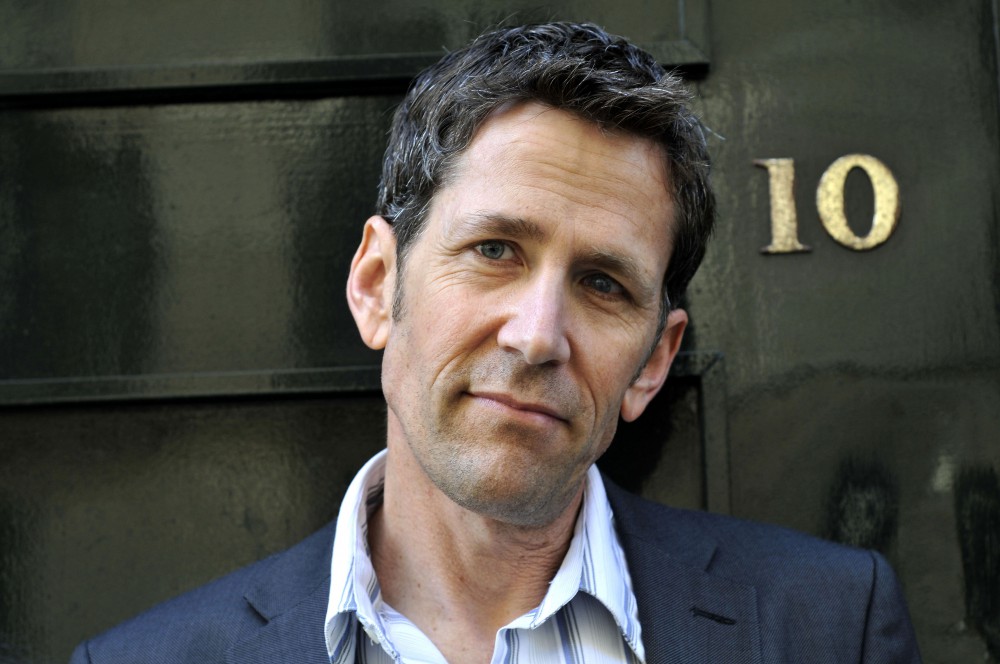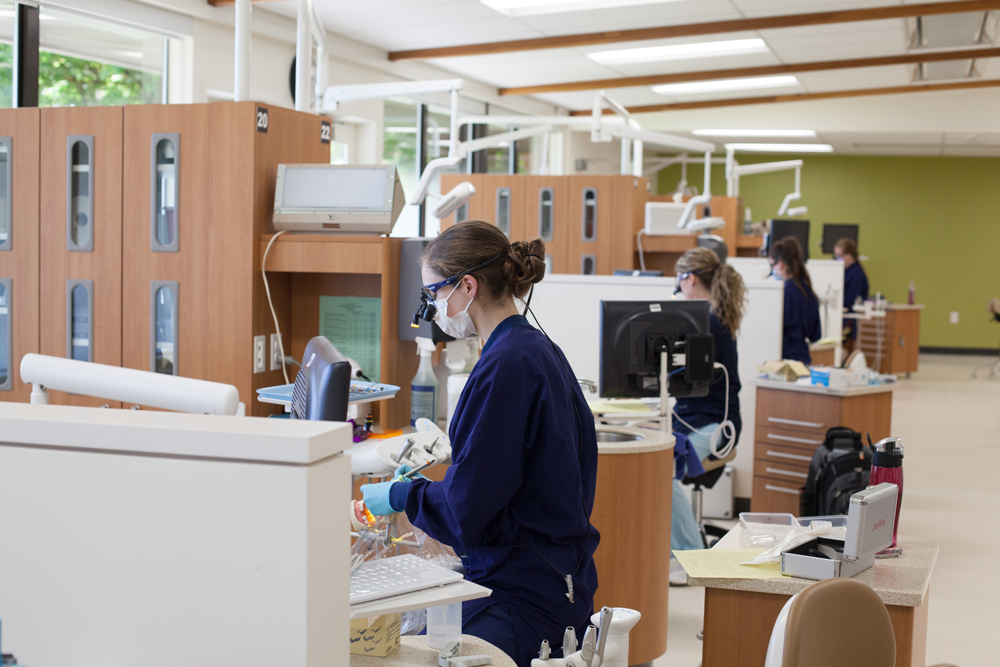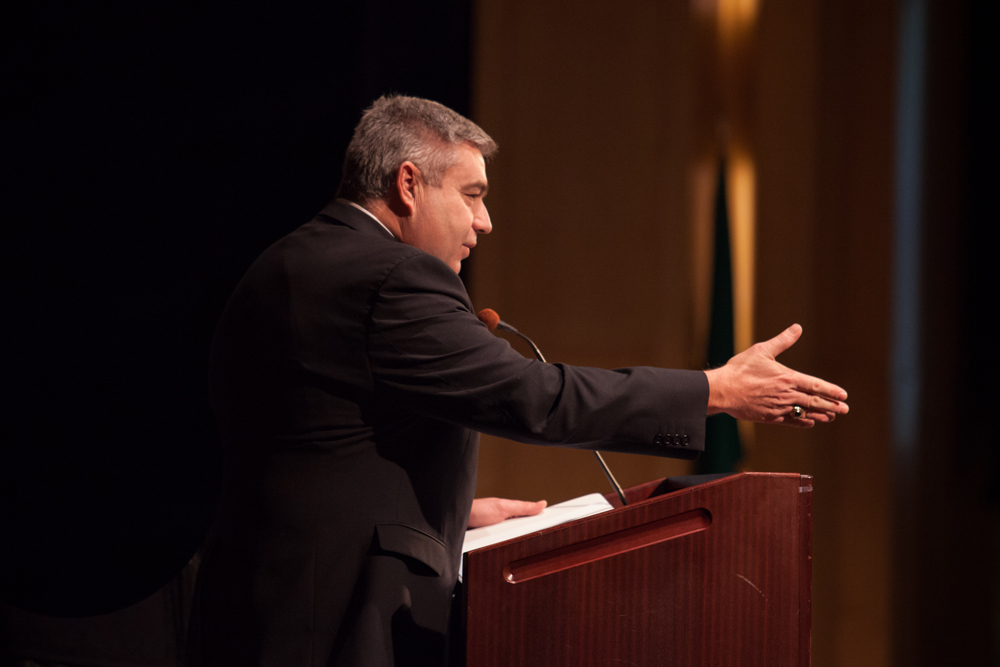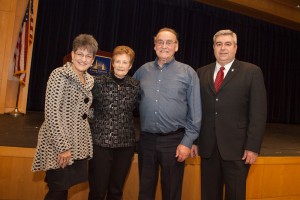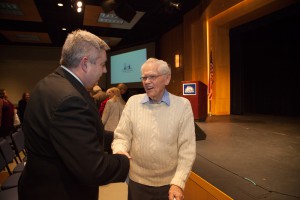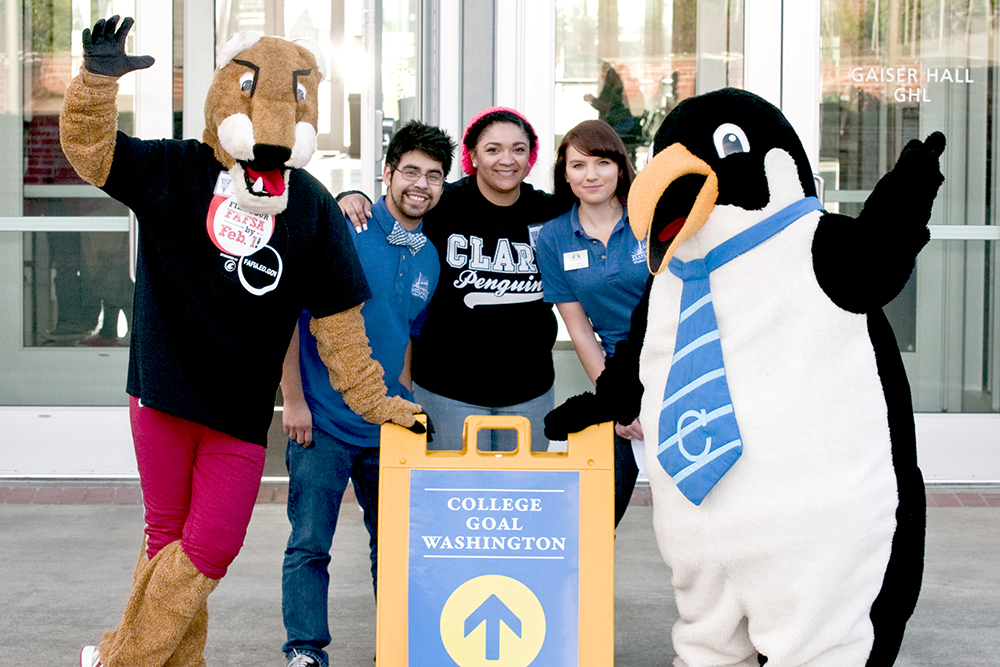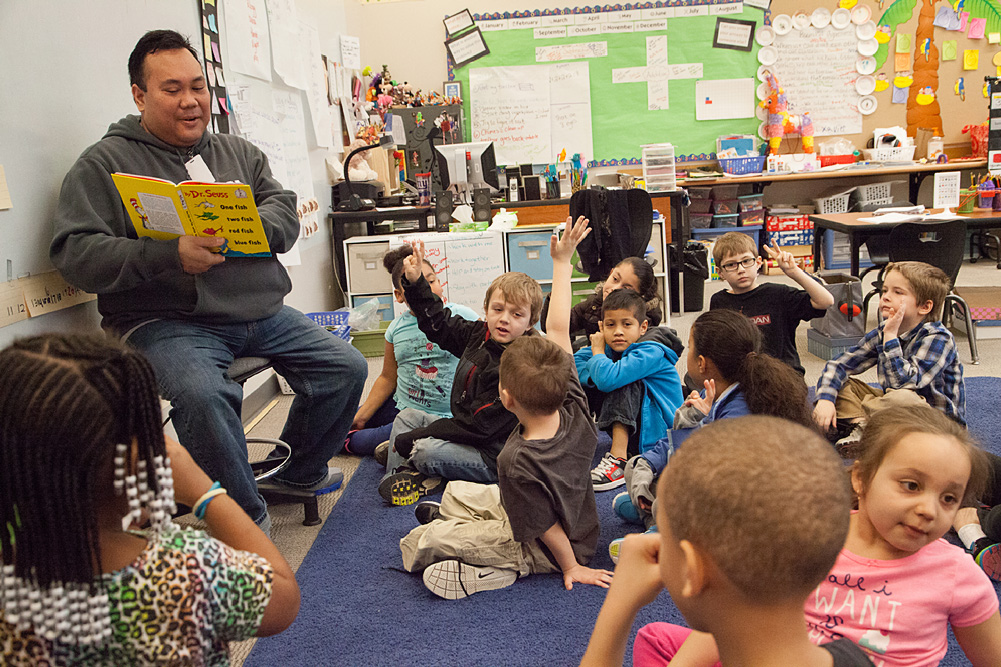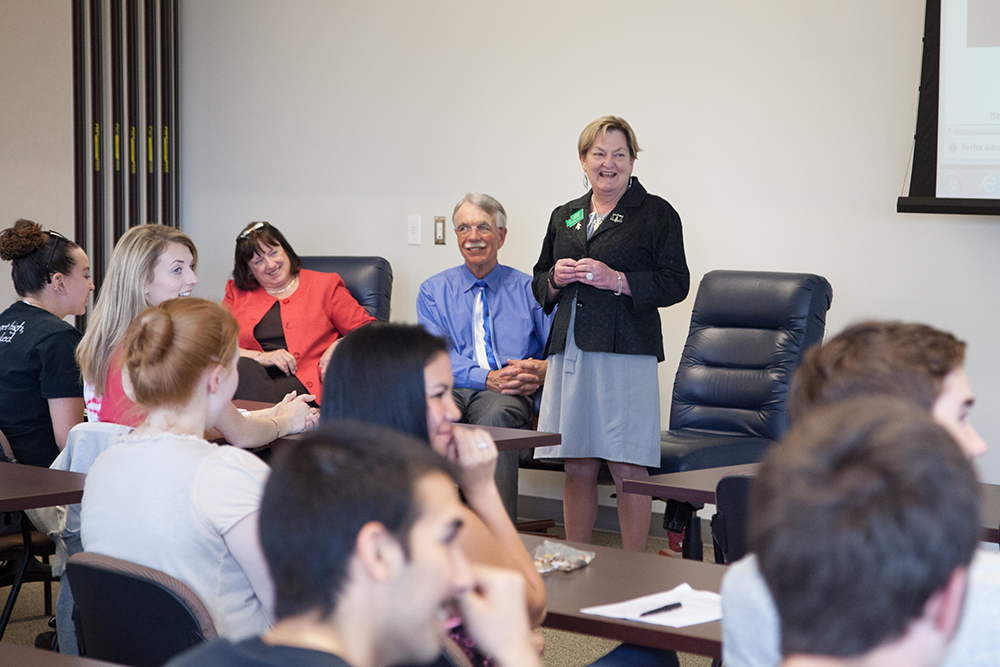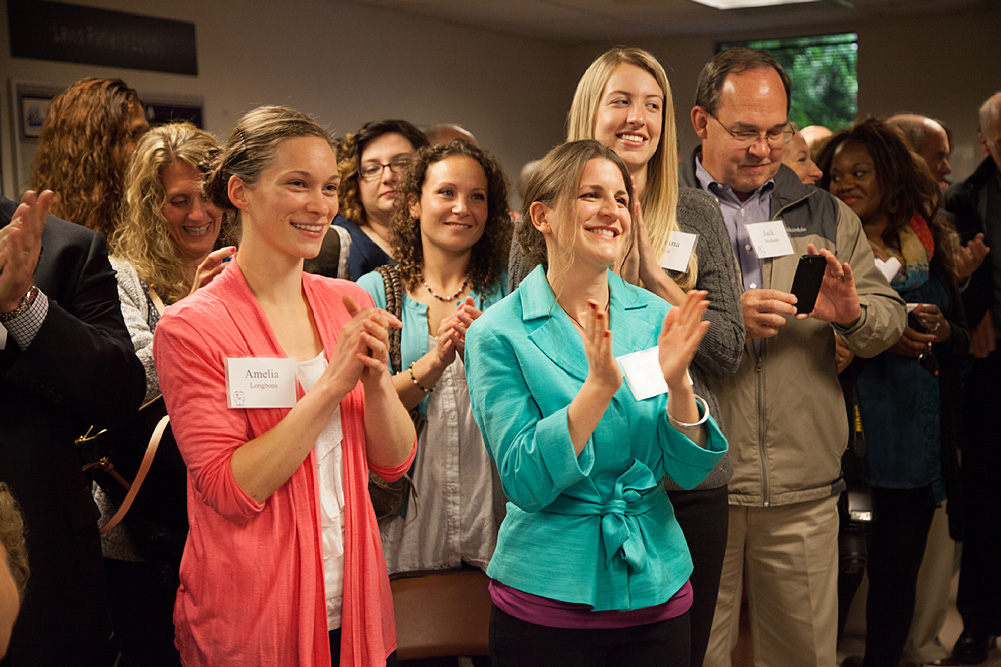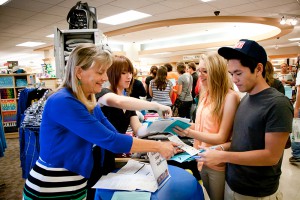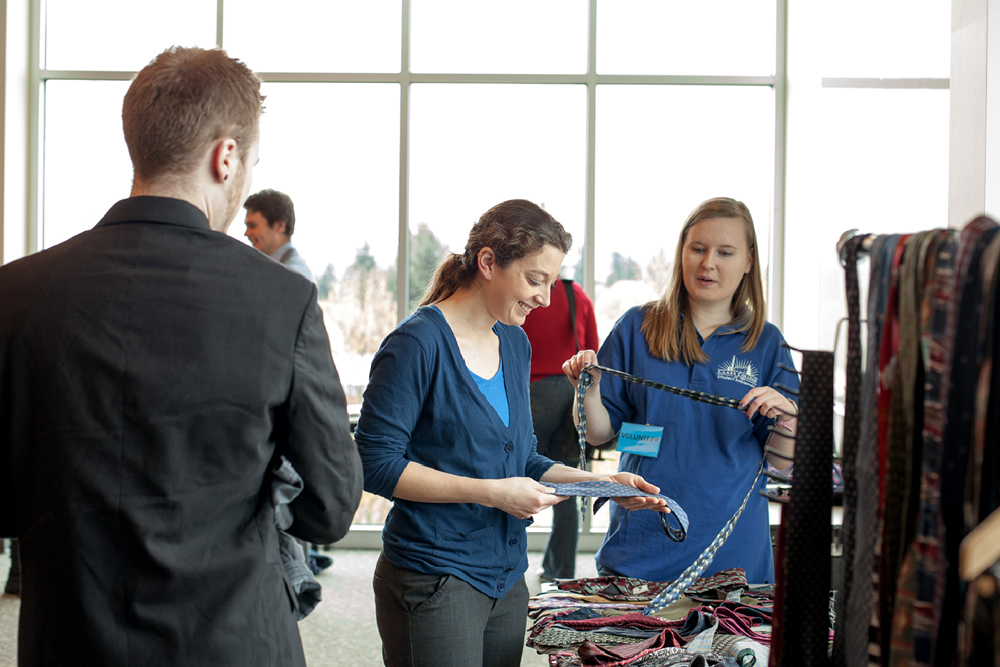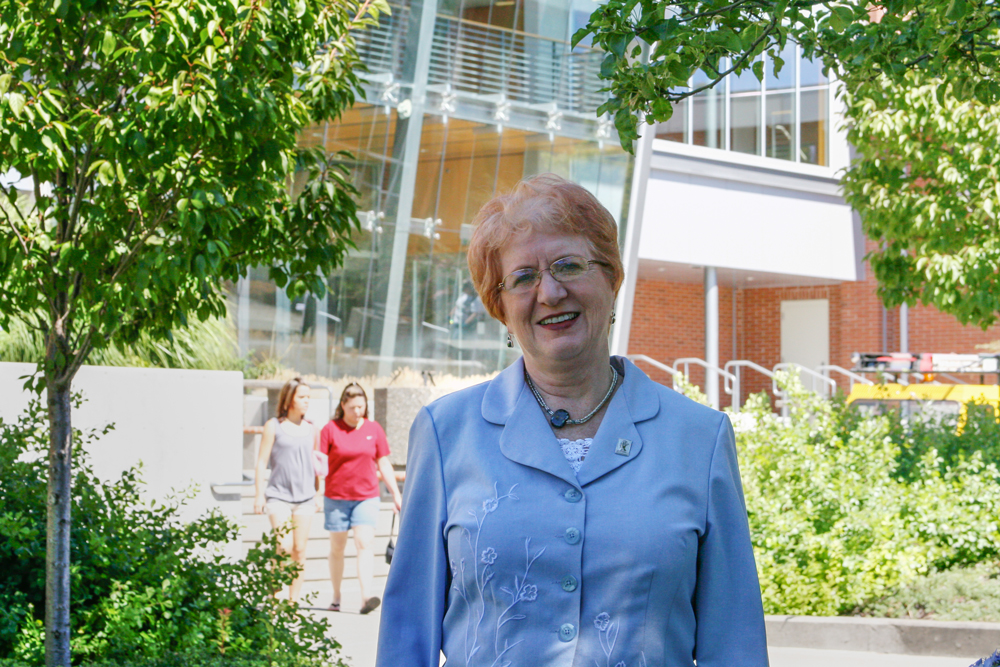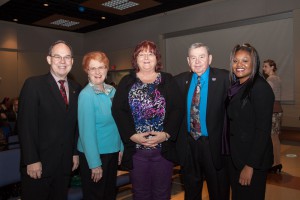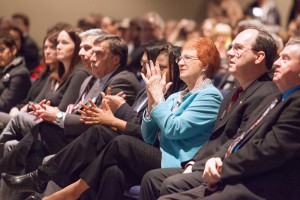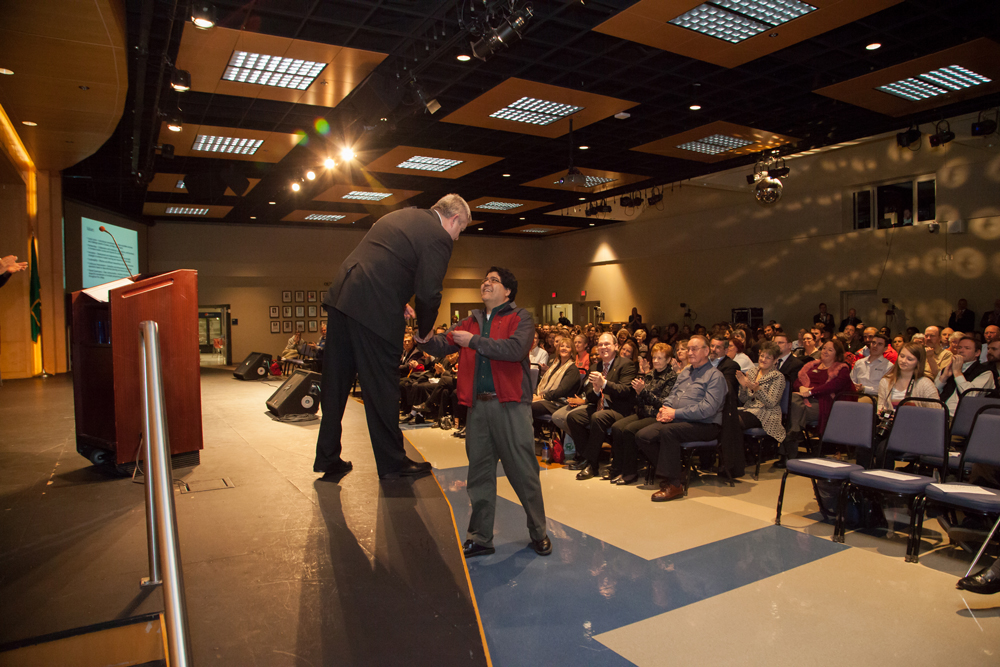
Engineering professor Izad Khormaee receiving a Presidential Coin at the State of the College Address.
In 2007, Clark College President Bob Knight introduced a new honor at Clark College: the presidential coin.
The coin is given to faculty and staff members who provide exemplary service to Clark students, the college and the community. The honorees are decided by the president and are kept secret until the names are announced–generally on Opening Day in the fall or during the annual State of the College address.
Five Clark College employees received Presidential Coins during his 2015 State of the College Address on January 15. They were:
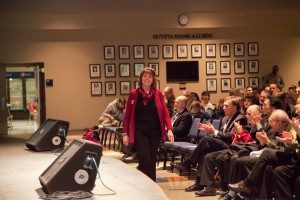
Carolyn Johnson
Carolyn Johnson
Carolyn Johnson has worked at Clark College in various capacities for 10 years, the past six of them in Career Services, where she currently holds the position of Employment Specialist & Co-op Coordinator. Her main focus and interests include assisting students with their job search and doing resume critiques. “I have seen her work tirelessly to help students start from a blank page, get the words on paper, develop a thoughtful summary statement, and assist with the smallest details of formatting,” President Knight said in presenting her with the coin. “She does this with patience and care for the student.”
Knight also cited Johnson’s work with international students, helping them to understand American employment practices and job-search strategies.
Izad Khormaee
Professor Izad Khormaee has taught Computer Science and Engineering at Clark College since 2002. He also has teaching experience at Oregon Institute of Technology, Washington State University, and Iowa State University, as well as more than two decades of engineering and managerial experience at prominent companies such as Hewlett-Packard. He is also the founder of e1 Solutions, a Vancouver-based online business software solution company.
Professor Khormaee also organizes a quarterly exposition where Computer Science and Engineering students can present their ideas for projects, which can range from bark-cancelling noise machines that can mute a neighbor’s noisy dog to mobile apps that help students with time management. “He loves working with students and helping them complete their projects,” said President Knight.
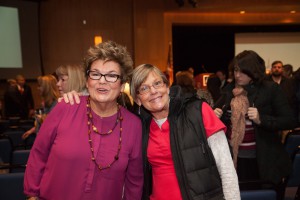
Karla Sylwester with fellow dental hygiene professor Brenda Walstead.
Karla Sylwester
Professor Karla Sylwester, who is retiring later this year, has been the lead restorative instructor in Clark’s Dental Hygiene program for more than 30 years. “She is regionally and nationally known for her teaching skills,” said President Knight. “People call from all over the U.S. to get help from her for their board exams.”
Sylwester regularly organizes group activities to help boost morale and student success, including her annual Halloween bowling extravaganza and her Monday night “Carving with Karla” sessions to help students pass their restorative board exams. Her no-nonsense demeanor has won her fans among students and faculty alike. “Because she cares, she’s tell you like it is,” President Knight said. “I really appreciate that.”
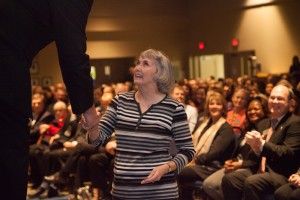
Audra Rowton
Audra Rowton
Audra Rowton began working in Clark’s Purchasing department 13 years ago. She is now the department’s secretary senior. Her work ethic began early: She earned her associate degree in secretarial science at Rio Hondo College in Whittier, California, while also working full-time.
“I love Clark College because I work with a lot of great people,” said Rowton. “I really enjoy working with the faculty and being available to help the students with their questions.”
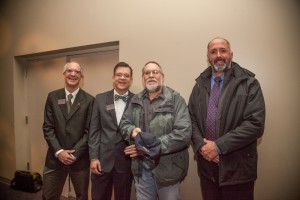
Dean of STEM, Peter Williams; Vice President of Instruction Dr. Tim Cook; Jim Watkins; and Director of Facilities Services, Tim Petta.
Jim Watkins
Project Manager Jim Watkins has been responsible for managing and seeing through to completion many of the college’s large capital projects, including the Clark Center at Washington State University Vancouver and Clark College at Columbia Tech Center (both of which came in on time and under budget, Knight noted). Currently Watkins is overseeing the construction of the new STEM building on Clark’s main campus, after which he will begin planning Clark’s new North County campus.
“He has earned a reputation for his thorough knowledge of all aspects of facility planning, design, and construction; his attention to detail; and his problem-solving skills,” said President Knight. “He has taken on our biggest capital projects with enthusiasm, perseverance, and a commitment to building the best possible facilities for our students, faculty, and staff.”
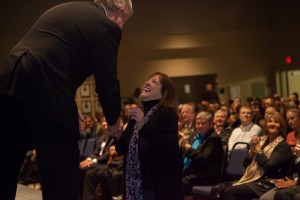
Sue Williams
Sue Williams
Sue Williams began her career at Clark in 1996 as a Human Resources Assistant Senior before becoming a Recruiting Manager, then Assistant Director of Human Resources, until moving to her current position as Associate Director of Human Resources. “She is the expert in HR policy and practices for the college,” said President Knight. “She heads the training, recruitment, hiring efforts and the benefits team of the college efficiently and with a true team spirit.”
Knight commended Williams for her “open, honest, consistent and fair” way of handling Classified Staff and Association for Higher Education discipline and grievance issues, and that “she is a huge asset to the college, supporting the students and employees without hesitation and always with a smile.”
Photos: Clark College/Jenny Shadley
